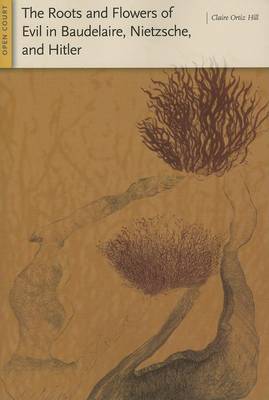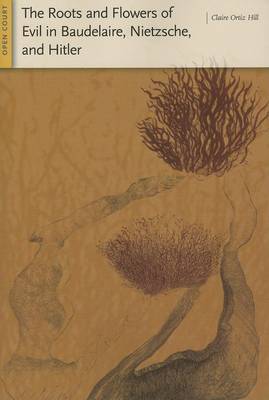
- Afhalen na 1 uur in een winkel met voorraad
- Gratis thuislevering in België vanaf € 30
- Ruim aanbod met 7 miljoen producten
- Afhalen na 1 uur in een winkel met voorraad
- Gratis thuislevering in België vanaf € 30
- Ruim aanbod met 7 miljoen producten
Zoeken
The Roots and Flowers of Evil in Baudelaire, Nietzsche, and Hitler
Claire Ortiz Hill
Paperback | Engels
€ 29,95
+ 59 punten
Omschrijving
The seductive nature of evil is fully embraced by Baudelaire, Nietzsche, and Hitler. Instead of viewing these men in their traditional roles as poet, philosopher, and politician, Hill takes their most notorious writings and points out the insights, images, and surprising facts about evil in their interpretations. Viewing these men as thinkers presents an opportunity to see their powerful imaginations at work, mixing theories with observations and actions to reach their final attitude toward power. However, as the author demonstrates, ideas put on paper are not the same as ideas put into action. The book makes the transition from written theories to the real world with historical and current examples of oppression, violence, and torture. Covering many disciplines -- philosophy, history, politics, ethics, psychology, literature, aesthetics, religion, and sociology -- the book draws on extensive present-day scholarship of Nietzsche, the problem of evil, and the Holocaust and argues persuasively that power can be imposed through nonviolent movements.
Specificaties
Betrokkenen
- Auteur(s):
- Uitgeverij:
Inhoud
- Aantal bladzijden:
- 288
- Taal:
- Engels
Eigenschappen
- Productcode (EAN):
- 9780812695861
- Verschijningsdatum:
- 30/03/2006
- Uitvoering:
- Paperback
- Formaat:
- Trade paperback (VS)
- Afmetingen:
- 154 mm x 227 mm
- Gewicht:
- 358 g

Alleen bij Standaard Boekhandel
+ 59 punten op je klantenkaart van Standaard Boekhandel
Beoordelingen
We publiceren alleen reviews die voldoen aan de voorwaarden voor reviews. Bekijk onze voorwaarden voor reviews.











